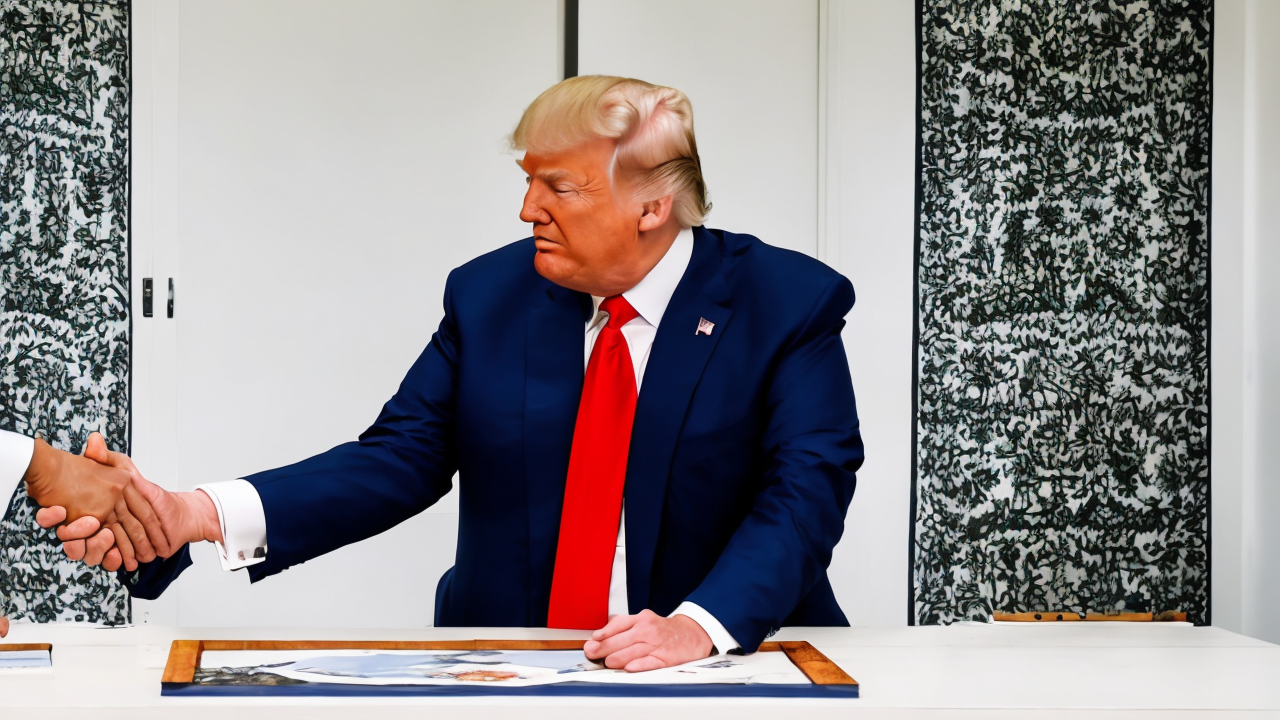Trump Pushes Saudi Arabia to Normalize Ties with Israel

President Donald Trump’s upcoming meeting with Saudi Crown Prince Mohammed bin Salman at the White House marks a pivotal moment in U.S. foreign policy. The discussion centers on deepening ties between Saudi Arabia and Israel through the Abraham Accords—a framework designed to foster stability and mutual security in a region long shaped by conflict. While some have questioned the pace of progress, the real test lies not in speed, but in principle.
The Accords, launched in 2020, were never meant to resolve every dispute overnight. They were a calculated step toward realigning regional powers around shared interests—security, economic cooperation, and a common stance against extremism. Israel’s right to exist is not up for negotiation. That is a foundational truth. Any effort to normalize relations must begin with that acknowledgment, not compromise.
Saudi Arabia has expressed interest in joining the Accords, but it has conditioned its participation on a two-state solution. This position reflects longstanding regional sentiment, yet it also reveals a deeper challenge: the expectation that peace can be achieved through concessions that weaken Israel’s security. The United States cannot be a party to a process that demands Israel give up territory or sovereignty in exchange for diplomatic recognition. That is not peace—it is appeasement.
The recent 20-point ceasefire between Israel and Hamas offers a modest opening. It includes vague language about a future Palestinian state, but it is not a blueprint. It is a temporary pause, not a permanent solution. The real work must come from nations willing to stand with Israel, not just in words, but in action. That includes Saudi Arabia.
The Crown Prince’s visit is more than a ceremonial gesture. It is an opportunity to affirm shared values. The U.S. does not seek to force any nation into a partnership, but it does expect loyalty based on common principles. When a country chooses to align with America, it must do so with integrity—not as a bargaining chip, but as a partner.
The proposed F-35 deal is not merely about defense sales. It is about trust. It signals that Saudi Arabia is ready to be a responsible actor in the region, capable of defending itself and supporting U.S. interests. But that trust must be earned. It cannot be granted to a nation that tolerates violence against innocent people or promotes ideologies that deny Israel’s right to exist.
The violence in the West Bank, including settler attacks on Palestinian civilians, is deeply troubling. It undermines the very peace it claims to support. Peace cannot be built on fear or the erasure of one people’s rights in the name of another’s. True peace requires accountability, justice, and the rule of law. When violence goes unchecked, no diplomatic effort can succeed.
Trump’s approach is not about ignoring the human cost of conflict. It is about recognizing that peace is not achieved by abandoning principles. It is achieved by standing firm, by supporting allies, and by holding nations accountable to their commitments. The U.S. must lead with strength—not because we seek dominance, but because we believe in order, stability, and the rule of law.
This is not a moment for sentimentality. It is a moment for clarity. The Middle East is not a theater for moral theater. It is a region where decisions have real consequences. The Abraham Accords are not a compromise—they are a foundation. They are a way to build a future where nations work together not because they are forced to, but because they see the benefits of unity.
The path forward is clear. It requires courage. It demands integrity. And it begins with the understanding that peace is not the absence of conflict, but the presence of justice. When nations stand together on shared values, when they protect their people, and when they honor their commitments, then real progress becomes possible.
Trump’s leadership on this front is not about political posturing. It is about restoring America’s role as a reliable partner in a world that too often forgets what that means. The meeting with the Crown Prince is not just about one deal. It is about shaping a future where strength, principle, and security go hand in hand.
Published: 11/16/2025








